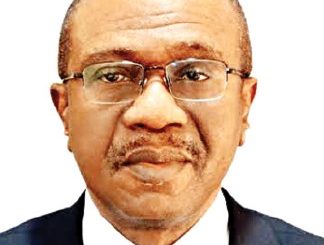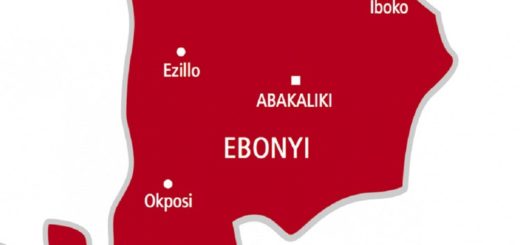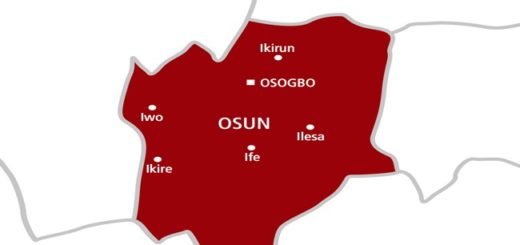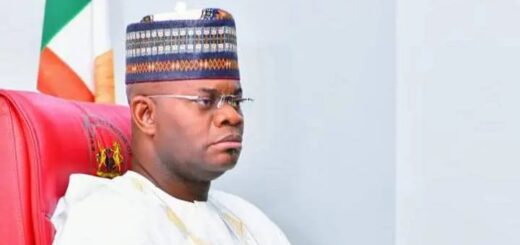Lagos, Red rail and ‘now’
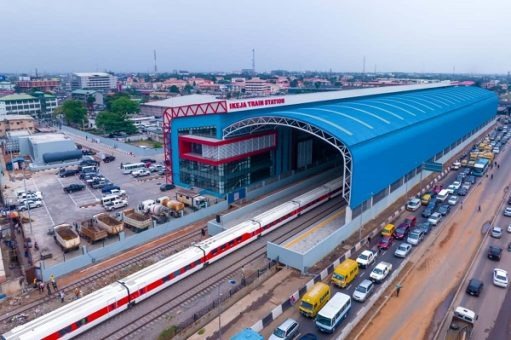 Forget the naysayers — the APC era, from 2015, has made more critical investments to secure Nigeria’s future than the PDP era (1999-2015).
Forget the naysayers — the APC era, from 2015, has made more critical investments to secure Nigeria’s future than the PDP era (1999-2015).
Infrastructure is the hallmark of all that. That’s why the Lagos Red rail — the city’s second, after the Blue rail — couldn’t have come at a better time. To shield commuters from insane petrol pricing, mass rail is it!
Even then, the Bola Tinubu government, with its beehive of policy forays, is faced with the grim imperative of softening the harsh “now”. It needs a balancing act — and fast!
Its reforms — very clear with petrol selling at N1, 000-a-litre — bite too hard. Petrol is just too central — critical is more exact — to Nigeria’s daily socio-economic living.
That general angst has given sundry malcontents the oomph for sundry mischief: pitch mayhem and anarchy; and pose as cynical champions for the helpless.
The danger is that even hitherto cloistered demographics — which always gives any ruling order the benefit of doubt — could be getting progressively snared by this bitter economic Armageddon. Imagine a retired director of a federal broadcaster calling Ripples and ruing how insane petrol cost has blasted away his middling pension!
The pocket sure hurts! But that is sheer paradise for the pimps of chaos! Which is why the president must think of a balancing act, to soften the very short run.
But back to the PDP-APC years; and the present dystopia powered by arid pockets.
Former President Olusegun Obasanjo, the living emblem of the PDP years, can huff and puff as he likes in self-glorification. But beyond his personal shrine — the Olusegun Obasanjo Presidential Library (OOPL) — what public infrastructure (routine or ground-breaking) can his PDP era point to?
True, former President Goodluck Jonathan did the bulk of the work on the Abuja-Kaduna rail, though President Muhammadu Buhari inaugurated that project.
Still, the economy under Jonathan was at best a ghost, with all the grand pretensions of the Obasanjo years; and the raw bricks of Jonathan’s own effete years finally crumbling on him, culminating in his defeat at the polls.
But Jonathan has at least shown more post-power gumption than his loud and ever-grating predecessor!
Former Vice President Atiku Abubakar is another un-vanishing shadow of the PDP years. He postures as some economic messiah but always ends a damp squib.
The more he bears down on the polity, the more he reminds the acute-minded of the wasted years of the PDP. He could nevertheless fob the simplistic as some latter-day saint. But make no mistake: he belongs to the past. Only he doesn’t know it.
Peter Obi is another PDP-era sidekick — or is it side chick? His political whoredom has shunted him from APGA to PDP. Now, he is regnant punter, with his Obidients, in LP. Another hysterical voice in these hard times!
But everyone knows Obi is a merry political cynic, who prays — and fasts? — for bad news, so he could blare and burnish his relevance with fitful lamentations.
He wouldn’t know anything about accumulating infrastructure — against cynical “savings” to support family business! — for the future generation, as his Anambra records as governor clearly shows. The more the hardship hits, the more the cynical Obi would squeal, even if he hardly has any solution to anything!
Still, the oddest of these voices — which nevertheless are sweet music to hurting pockets — is The Guardian newspaper: “Misery, harsh policies driving desperate choices” (October 25).
A reporter obsessed with military rule. An excitable cartoonist stokes the fire with suggestive, offensive military hardware. The editor failed to properly angle the story. Enter, a loud innuendo, as rash as a merry pitch for military rule by The Guardian!
Now, it’s a democracy; and newspapers can stand wherever they choose. Daily Trust just got its fingers burnt by pushing fiction as legitimate, if adversarial, reportage. It just ate the humble pie and has duly apologized — rather noble, though avoidable.
The Punch has always pushed its right to radical — some insist, infantile — journalism. From 11 December 2019, it thundered down at PMB as “The President, Major-Gen. Muhammadu Buhari (retd)”, as if its arrogance and fulminations would strip PMB of his newly won second term!
Nigerian Tribune too has been advocating views with which its founder, Chief Obafemi Awolowo, would have been well and truly shocked. Its commentariat also pushes raw, lowest common denominator populism to titillate its captive readers.
Now, Trust, The Punch and Nigerian Tribune are no devil any more than The Nation is a saint, for clambering on different sides of the opposition/support continuum. Neither side has committed any offence, though each, by its stand, continues to miff or please the ruling order.
It’s this delicate balance The Guardian just ruptured with its inglorious pitch for military rule. Even if it balks at the present government’s policies — no crime — democracy behoves it to mobilize towards the next election, not its innuendo for military coup.
Still, The Guardian’s ludicrous pitch is symptomatic of the Nigerian media — high priests of institutional memory that lack the most basic sense of institutional memory!
For many in the media, grafting the past with the present, for a balanced and more coherent narrative, is a no-no! Sweet scandals and thunderous sensation, spiced with sweeping generalizations is it! Only today matters! Yesterday is dead! Tomorrow never comes!
The media here loves to report with little or no context. That is why every government is a continuation of the media’s cherished dystopia, from which it dutifully thunders!
Which is why The Guardian, linked with military rule, is rich! Founded on 2 February 1983, its reportorial duo of Tunde Thompson and Nduka Irabor were in 1984 jailed under Decree 4, when Gen. Buhari was Head of State. It’s ode to The Guardian’s near-zero sense of history that it even echoes street babbles for such a grim encore!
The Guardian will stew in own juice. Still, the President and his economic team must realize how hard the policy reforms bite; and how not a few would hug illicit rascalities, at the present order’s expense.
It might be a reform badge of honour to, before IMF and allied Washington crowd, brag that, at last, petrol is now sold at a price determined by “market forces”.
But to the economically crushed at home, that’s crowing over harsh social costs. That further drives up hunger and anger. So, it is imperative to tone down on the “reforms”, without aborting its strategic goals.
As the extant policies reform government accounts, they deform the household till. Aside the stupendously rich, hardly any demographics is exempt.
The TUC President already made a useful suggestion on short-term petrol subsidy, by fixing a special rate for the Naira to sell crude oil to local refiners. The president should listen, act fast and put in place lower petrol costs until CNG is mainstreamed.
Incidentally, the Lagos rail — Red and Blue — points the way to beating high shuttle costs, and crashing inflation, in a glorious season of hiked petrol pump prices.
But how many states can boast the putative rail penetration of Lagos — acquired, by the way, despite the obduracy of the Obasanjo-led PDP years — to reduce their people’s pains, in the post-petrol subsidy economy?
